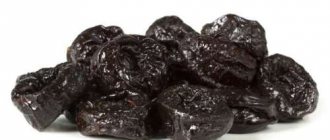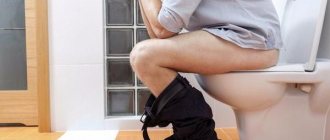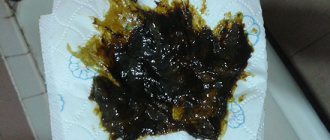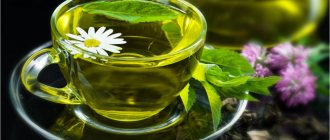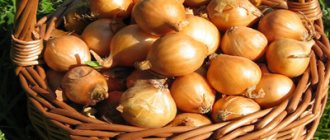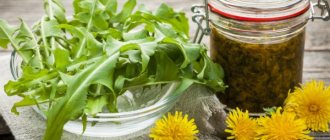Constipation is a problem with bowel movements that plagues a large number of people in childhood, adolescence and adulthood. To alleviate the condition, many methods have been developed, some of which are the most effective. Doctors and traditional medicine specialists recommend drinking laxative tea for constipation. The pharmacy offers a wide range of drugs of this effect, differing in cost and composition.
How they work
Black tea, even with milk, is not the best drink for constipation in adults. It is better to completely abandon it during treatment. There are many alternative options, including those that have a good laxative effect.
Constipation, obstipation, constipation are the names of one disorder when stool retention occurs. This has happened to everyone at least once in their life. There are many reasons for this - poor nutrition, low mobility, diseases, medications. In most cases, it is only a temporary phenomenon that can be quickly eliminated without the use of medications.
When constipating, you need to drink a lot of liquid, because stool consists of 70% of it. Constipation is characterized by their dehydration, which prevents normal passage through the intestinal walls. Solid masses injure the mucous membrane, which already has consequences.
Laxative tea for constipation for children and adults is an opportunity to replenish fluid deficiency. But this is not the only positive action. Tea with a laxative effect contains components that irritate the intestinal walls. Typically, this effect is due to chrysophanic acid, which is found in aloe, buckthorn, rhubarb, flaxseed and other herbs.
Tea with a laxative effect increases the urge to defecate due to intestinal irritation - this is its main effect.
If we consider herbal tea for the gastrointestinal tract, it contains many beneficial substances that have a positive effect on the digestive system and other organs. This tea is safer for constipation, because the laxative effect is combined with a stimulating effect, which normalizes peristalsis.
Plants with laxative effects
It’s simple to prepare a decoction that will stimulate the intestines, improve digestion, and eliminate discomfort. It is enough to find out the ingredients that have a laxative effect. A decoction that normalizes stool is prepared from fruits or medicinal herbs. Any pharmaceutical herb has contraindications that will need to be taken into account when preparing.
Herbal tea is made from medicinal herbs of one or more types that have a laxative effect. Collections from properly selected herbs will help cleanse the intestines, eliminate bloating and pain, and help eliminate waste and toxins.
Herbal teas contain dandelion, chamomile, senna, flax, rose hips, and buckthorn.
Dandelion has a gentle effect on the intestines, improving its functioning.
Senna is a grass specially grown in environmentally friendly areas. It is recommended to drink teas and infusions from the plant for delayed bowel movements and hemorrhoids. Nutritionists recommend senna for weight loss.
Rhubarb is a plant that stimulates intestinal motility. The ingredient in the mixture helps digest and absorb food and restores intestinal activity. To eliminate congestion in the intestines, it is recommended to prepare rhubarb root. The root is poured with boiling water and infused, taken before bed.
Buckthorn is a woody plant used in folk medicine as a laxative, antibacterial, and antimicrobial agent.
Fennel - eliminates digestive problems, relaxes the intestinal muscles, relieves bloating and flatulence.
Pros and cons
Laxative tea for constipation for children and adults has the following advantages:
- availability in any pharmacy, simple rules of use, low price;
- quick effect within 24 hours;
- positive effect on the entire body.
Laxative teas for constipation also have serious disadvantages:
- the intestines get used to the stimulating effect, which with frequent use only aggravates the problem;
- a large list of contraindications, including pregnancy, breastfeeding, severe gastrointestinal diseases, and children can only be given the drink with the permission of a doctor;
- a high risk of allergies to plant components, as well as an unpredictable reaction of the body due to the many active substances in the composition;
- some drinks help with constipation, but at the same time cause harm to the intestines, as for senna, which can provoke inflammatory processes;
- microelements and vitamins are washed out of the body, which can cause microflora disruption and decreased immunity.
Not all popular laxative drinks receive good reviews. You need to be wary of advertised herbal remedies for weight loss. Their action is quite aggressive, because weight loss occurs due to dehydration of the body. You should not take this tea for constipation, because it is dangerous to your health.
When choosing any laxative drink, you should consult your doctor.
Does green tea help with constipation?
This drink is widespread and consumed by many people every day - it is loved for its pleasant delicate taste, refreshing and invigorating effect, and wonderful aroma. With all these advantages, the laxative effect is not included in the arsenal of its properties. Green tea or another variety - there is no significant difference for intestinal function if we are talking about natural leaves without flavors, dyes and other additives.
Of course, drinking green tea can affect the activity of peristalsis, but this is achieved not only due to its effect on the body, but also due to an increase in fluid intake.
Rules of use
Green tea has a mild laxative effect for constipation. Whether the product weakens or strengthens can be determined by its composition. If we talk about the well-known green leaf, then prepared green tea weakens, and even with frequent use cannot provoke constipation.
Strong black tea is not good for the intestines. It should be avoided in case of various digestive disorders.
How to properly use laxative herbal tea to treat constipation:
- drink in the first days of the onset of the disorder;
- carefully read the description, side effects and contraindications;
- if you are prone to allergies, refuse this method of treatment;
- if adverse reactions occur, stop taking the drink;
- At the same time, follow a diet;
- take according to the instructions in the indicated dosage.
Negative points
The negative consequences of their use are:
- the body quickly gets used to external assistance for defecation, as a result of which intestinal motility decreases;
- an allergic reaction to any of the herbal ingredients may occur;
- Excessive amounts of fluid are removed from the body due to improper use of the drug;
- a number of herbs, for example hay, in addition to the laxative effect, also have a negative effect on the intestines; this ingredient may cause erosion or inflammation of the mucous membrane; the use of drugs based on this plant causes acute abdominal pain that goes away after defecation;
- beneficial substances are washed out of the body, as a result of which immunity decreases and a person develops dysbacteriosis;
- an extensive list of persons for whom the use of such a drug is contraindicated; Teas should not be consumed, for example, by pregnant and lactating women, people suffering from gastrointestinal pathologies, and children.
It is the negative aspects of taking such tea that require prior consultation with a doctor or choosing the most suitable drug to improve stool.
Which to choose
Herbal tea can be bought at a pharmacy, or prepared at home. As already mentioned, you should not buy products that have a “miracle effect”, eliminating all problems with the gastrointestinal tract and losing weight. The drink must contain detailed instructions with a full description of the composition.
Ready-made herbal teas with a laxative effect:
- Evalar tea is a fruit-based laxative drink, has a pleasant aroma and taste, acts overnight, that is, in the morning the manufacturer promises results in the form of normal bowel movements;
- Keys of Health No. 19 – normalizes digestion, has a mild carminative and laxative effect, contains senna, buckthorn, string, fennel;
- Hipp children's laxative drink - the product contains fennel extract, helps with bloating and improves digestion, and does not contain harmful additives.
Monastic
Monastic tea for constipation, according to the instructions:
- improves the functioning of the gastrointestinal tract;
- does not have a direct laxative effect;
- helps cleanse the body;
- useful for atonic constipation and chronic stool retention.
Green
When asked whether green tea strengthens or weakens, experts in the field of herbal medicine give the following answer:
- has a mild laxative effect;
- to get the effect you need to drink it for 3-4 days;
- Drink 150 ml on an empty stomach at night and in the morning.
Blooming Sally
How is fireweed tea useful for constipation:
- normalizes mental state;
- improves peristalsis;
- increases resistance to stress.
Ivan tea helps to cope with mental factors of disorder, because it is known that constipation can occur against the background of stress, depression, and emotional stress.
Other phytodrinks
What else can you try if you have stool retention:
- decoction of willow grass;
- from dandelions;
- from thorns;
- from fireweed leaves.
You can prepare combination drinks that will be as healthy as possible. For example, combining buckthorn with dill and flax seeds, yarrow with nettle, sweet clover with rose hips.
Herbal recipes for constipation
A few simple but effective recipes that will help with stool retention:
- A decoction of flax seeds. A large spoonful of raw materials is poured into a glass of boiling water. The product is infused for half an hour. Take 50 ml before each meal. This drink will be a good prevention of constipation, because flax seeds have a positive effect on digestion, preventing many gastrointestinal diseases.
- Buckthorn infusion. A spoonful of bark is poured with 150 ml of boiling water. The product is infused for half an hour. Accepted in a similar way.
- Laxative collection. Buckthorn bark, yarrow herb and nettle are mixed in a ratio of 3:1:2. The mixture is poured with 500 ml of boiling water. Infuse for 40 minutes. You need to take half a glass 2 times a day.
- A decoction of buckthorn, dill and flax. The ingredients are mixed in a ratio of 4:1:1. Pour in 250 ml of boiling water. The product is infused for 15 minutes. Take as regular herbal tea up to 3 times a day.
- Kuril collection. A large spoon of Kuril collection is poured with 250 ml of boiling water. The product is infused for at least 2 hours. Take a spoonful on an empty stomach.
The prepared decoction should be stored for no more than 3 days. Then the beneficial properties are lost. It is recommended to take herbal teas in the course indicated in the instructions, but not more than 21 days. You should take breaks for several days.
If your child has digestive problems, you should contact your pediatrician. The doctor will give recommendations on nutrition and may prescribe massage and children's gymnastics. It is impossible to prepare laxatives for a child at home; it is dangerous. Older children can include prunes, fermented milk products, and dried apricots in their diet. As for drinks, it is better to give more clean water.
To avoid the need to treat constipation in the future, you should understand how a particular drink affects the intestines, weakens or strengthens. It is better to give up products with a mild laxative effect when this is not necessary, because addiction occurs.
Medicinal plants can be combined so that they enhance each other's beneficial properties. There are several herbal remedies that have a laxative effect. Below are the most effective of them:
- Yarrow, nettle, buckthorn bark. Take all the ingredients one tablespoon at a time and place in an enamel bowl. Pour 500 ml of boiling water and cook over low heat for 10 minutes. Strain the broth and drink half a glass 2 times a day. The stool returns to normal on the second day. As a preventive measure, this decoction can be consumed once a day.
- Flaxseed and kefir. Both of these products have a laxative effect. Combined together, they will help empty your bowels within an hour. 2 tablespoons of seeds need to be poured into 100 ml of kefir. Leave for half an hour and drink.
- Senna and dandelion root. Take a tablespoon of both components and pour 200 ml of boiling water. Cool naturally and strain. Drink 1/3 cup of the decoction three times a day until constipation stops.
- Tea made from rosehip, senna and rowan. For a liter of water you need to take 2 tablespoons of each component. Place everything in a thermos, pour boiling water over it and leave for 3-4 hours. You can add honey to the finished tea. You should drink the decoction little by little throughout the day until you have a bowel movement.
All recipes are proven, cause virtually no side effects, and help to empty the intestines throughout the day.




